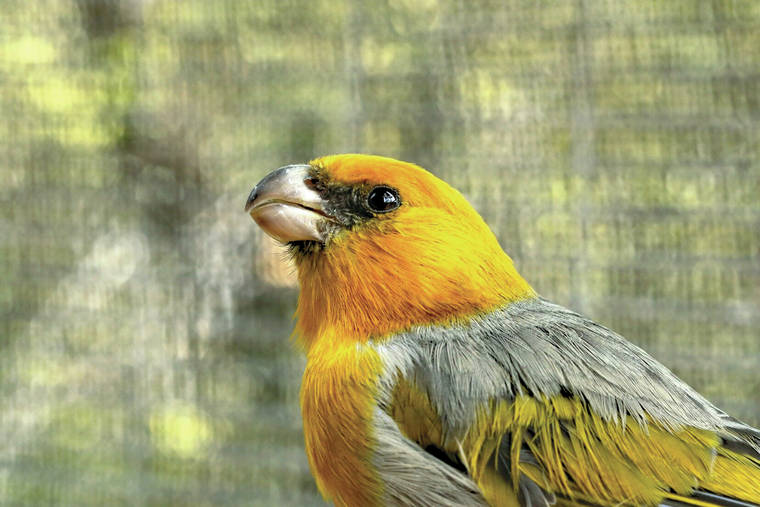Six endangered birds were released into the Big Island wilderness earlier this week as part of an effort to revitalize another species native to Hawaii.
Six endangered birds were released into the Big Island wilderness earlier this week as part of an effort to revitalize another species native to Hawaii.
The six birds are palila, relatives of finches that are now only found on the high slopes of Maunakea.
The palila were released as pairs on May 17 into three separate areas of the Pu‘u Mali Restoration Area on the north flank of Maunakea. The birds will avail themselves of feeding stations within the release area and are equipped with transmitters that will allow researchers to track their movements.
This is the first time these palila have flown in open air. The six were hatched and raised at the Keauhou Bird Conservation Center, a facility operated by San Diego Zoo Global, one of several agencies involved in the project to restore the species.
Other organizations involved include the state Department of Land and Natural Resource Division of Forestry and Wildlife, the American Bird Conservancy, the Pacific Cooperative Studies Unit at the University of Hawaii at Manoa and the U.S. Fish and Wildlife Service.
“Currently palila are found in one small isolated area on (Maunakea),” said Lainie Berry, Hawaii forest bird recovery coordinator at the Division of Forestry and Wildlife. “Having such a small population in one area puts the species at a very high risk of extinction. This release is the beginning of our attempt to establish a second population on the mountain to broaden their current range and reduce the extinction threat.”
Palila populations have been broadly threatened by habitat loss and degradation, as well as introduced predators such as cats and mongoose. While the birds used to be found on Kauai and Oahu, they are now only found on the Big Island.
It is estimated that only 1,000 palila exist in the world.

Subscribe today for unlimited access.
Already a subscriber?
Login
Not ready to subscribe?
Register for limited access.
If you have a print subscription but require digital access,
activate your account.






